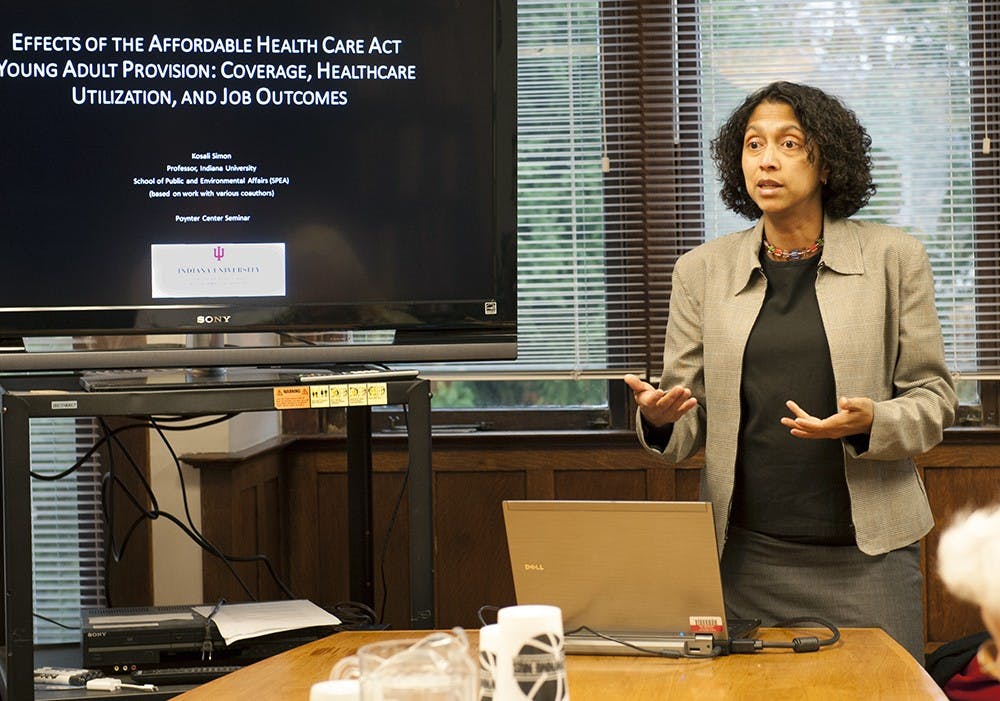School of Public and Environmental Affairs professor Kosali Simon, who studies health economics and policy, began the discussion with a lecture titled “How has the Affordable Care Act Affected Young Adults? Evidence from the Law’s First Insurance Expansion.”
The talk was the third in the Poynter Center’s fall lineup of health care ethics seminars, which take place the second Wednesday of every month.
Simon said her work involves investigating the health and labor market impacts of various types of health insurance.
“It’s about trying to make the health care system better,” she said.
The Affordable Care Act Provision for Young Adults — the subject of the talk — affects young adults aged 19 to 25 whose parents have private insurance, Simon said. Among other things, the act requires insurers to allow dependents to remain on their parents’ policy until their 26th birthday.
Simon compared her work to medical research on the effectiveness of a drug.
“We would like to answer questions about how effective some law is, like how in medicine we want to see how effective a drug is,” she said. “The difference is that we don’t have a lab setting or obvious control and variable groups.”
Instead, Simon said, policy researchers have to analyze and draw conclusions from government-provided data.
Simon said one question she looked into was the impact of the Young Adult Provision on the level of insurance coverage, which she said increased 30 percent for the 19 to 23 age group.
Simon explained she must consider in her analysis that the statistic doesn’t necessarily mean all those people were uninsured before, as the data does not tell if someone switched from buying their own insurance to joining their parents’ plan.
Another question Simon is exploring is if receiving health insurance that is not tied to a young adult’s own employment affects their behaviors related to work.
“Maybe someone will now pursue art or start their own business, where they wouldn’t initially get insurance,” she said.
Members of IU’s pre-med fraternity Phi Delta Epsilon — for whom attendance at the talk was mandatory — comprised the majority of the audience.
Danielle Yin, a senior in the fraternity, said the talk was relevant to members of the group on many levels.
“We’re all going to be doctors, so we think it’s important for us to know how the Affordable Care Act will affect us and our future patients,” she said.
Yin added that the Affordable Care Act Young Adult Provision is especially relevant for pre-med students who stay in medical school well into their mid-20s.
“Even in med school we are covered now,” she said.
Katie Griffin, another member of the fraternity, said it was interesting to learn about a different kind of research from what she conducts in a lab setting.
“Social and economic experiments are hard for me to grasp,” she said. “I liked that she related it back to us.”
Griffin said she also was impressed by the kinds of social and economic conclusions Simon drew from government data.
“I never knew that they had access to all that information,” she said.
Simon said the information she presented at the talk is just the very beginning when it comes to analysis of the Affordable Care Act.
“Data (about the Affordable Care Act) is just starting to come out,” she said. “Now only do we need to start to try and make sense of it.”






